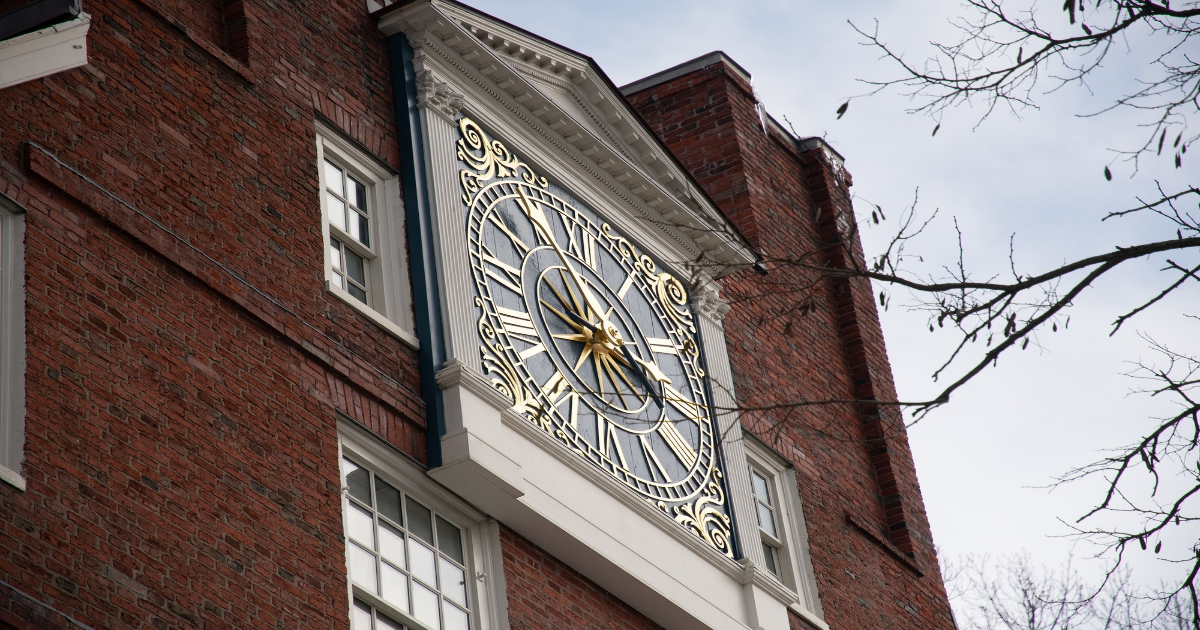Updated April 19, 2025, at 9:05 a.m.
The White House had not intended to send its revised — and more aggressive — set of demands to Harvard on April 11, according to a report by the New York Times published Friday evening.
Trump administration officials claimed that the demands — which were seen as excessive and illegal to Harvard’s administrators — should not have been sent and were “unauthorized,” according to the Times, which cited two unnamed sources.
The April 11 letter was signed by Josh Gruenbaum, the commissioner of the General Services Administration, Sean R. Kevney, the acting general counsel of the United States Department of Health and Human Services, and Thomas E. Wheeler, the acting general counsel of the U.S. Department of Education.
A Harvard spokesperson slammed the government’s response as “breathtakingly intrusive” in a statement to The Crimson.
“Even if the letter was a mistake, the actions the government took this week have real-life consequences,” the spokesperson wrote, adding that the letter was signed by a senior official and bore all the hallmarks of an official government document.
A White House spokesperson did not immediately respond to a request for comment.
According to the Times, Harvard’s lawyers had been seeking specifics on the Trump administration’s initial set of demands, which were sent on April 3, believing it was possible to avoid the public standoff that later ensued.
The first letter — two pages in length — demanded that Harvard ban masks at protests, eliminate diversity, equity, and inclusion programming, and agree to comply with the Department of Homeland Security, but carried little detail of what the White House wanted the University to change.
The Friday letter was supposed to clarify the initial list, but instead presented a much more aggressive array of demands that included derecognizing pro-Palestine groups, submitting to three years of federal audits, and agreeing to report international students who broke University conduct policies to federal agencies.
Shortly after Harvard President Alan M. Garber ’76 announced the University would defy the White House’s demands on Monday, Gruenbaum called one of Harvard’s lawyers to say that he, and Wheeler, had not authorized the letter’s release.
But in the same call, while Gruenbaum indicated that the letter had been ready to send, it was not intended to be delivered last Friday when conversations between the Trump administration and Harvard were still ongoing, according to the Times.
A senior White House official defended the demands the administration issued last Friday and its aggressive response in the letter’s direct aftermath in a statement to the Times, saying that Harvard had failed to “pick up the phone” and engage with members of the federal antisemitism task force after Gruenbaum’s call.
“Instead, Harvard went on a victimhood campaign,” the official said.
On Monday night, senior administrators and the Harvard Corporation, the University’s highest governing body, were briefed on the alleged mistake in sending the letter — many of whom left convinced that the Trump administration’s aggressive revised set of demands were indeed sent erroneously, according to the Times.
But by then, the standoff between the Trump administration and Harvard had progressed too far — Garber had taken a stand and the White House had cut $2.2 billion in federal grants and contracts.
Clarification: April 19, 2025
A previous version of this article implied that Harvard officials had been negotiating with the White House before April 11. In fact, according to the New York Times, they were just in contact.
—Staff writer Dhruv T. Patel can be reached at [email protected]. Follow him on X @dhruvtkpatel.
—Staff writer Grace E. Yoon can be reached at [email protected]. Follow her on X @graceunkyoon.
